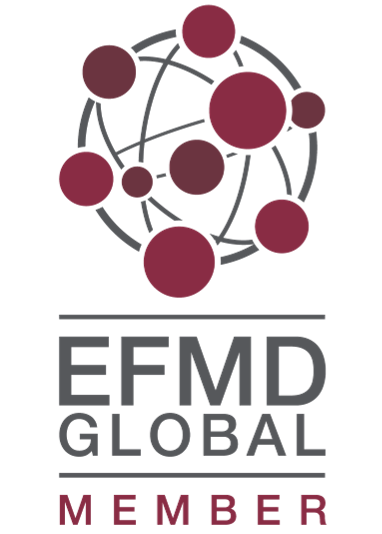
To address the influence of geopolitical risks on Taiwanese businesses’ global operations and foster sustainable development, the College of Business at Chung Yuan Christian University and the Center for Global Taiwanese Business Studies organized the Forum on Geopolitical Risks and the Evolution of Taiwanese Businesses’ Global Strategies. The forum featured representatives from three of Taiwan’s top 50 enterprises—KinPo Group, Delta Electronics, Inc., and Walsin Lihwa—who shared insights on how geopolitics shapes their global strategies and offered strategies for mitigating risks amidst rapidly shifting global conditions.

Simon Chang highlighted that geopolitical risks impact businesses unless they exclusively operate within Taiwan’s domestic market. He emphasized the challenges posed by regional wars, conflicts, blockades, and restrictions, likening businesses to tightrope walkers navigating geopolitical hazards. However, he asserted that crises present opportunities. Delta Electronics has divided its global operations into six regions, each functioning independently to align with local regulations, culture, and market demands. The company has established R&D, manufacturing, and sales mechanisms tailored to each region, leveraging smart devices, smart manufacturing, and system integration to achieve the “One Delta” digital transformation vision.
Delta Electronics has designated Taiwan as its global headquarters for operations and R&D, focusing on advanced technology and management. Key regional roles include:
Singapore: Backup global data center and logistics hub.
China: R&D and manufacturing for domestic and non-American markets.
India: R&D and local market-focused production.
Thailand: Smart manufacturing for mass production serving European and American markets.
USA and Europe: R&D of cutting-edge technologies and production systems for local markets.
Delta mitigates geopolitical risks through robust operational resilience, diversified resource sourcing, supply chain collaboration platforms, and a globally distributed workforce while adhering to international regulations.

Gwo-Ji Horng described the transformation of Taiwanese businesses from “nomadic” to “settled” global operations, extending from Taiwan to regional economic zones as localized manufacturing leaders. KinPo Group, encompassing subsidiaries such as Cal-Comp Electronics (Thailand) Public Company Limited, Compal Electronics, Inc., and AcBel Polytech Inc., operates 69 factories across 11 countries with nearly 110,000 employees. Its diversified product lines ensure stable revenue streams and build a resilient supply chain.
KinPo’s international production strategy spans China, Southeast Asia, the US, Mexico, Brazil, and Poland:
North America (US, Mexico): Serves the US market.
Europe (Poland): Services EU customers.
Asia (China): Supplies orders for Asian markets.
KinPo’s globalization strategy positions Taiwan as the group’s hub for R&D, operations, and financing. By fully integrating into global supply chains, utilizing regional resources, and ensuring mutual support among subsidiaries, the group offers seamless one-stop services. Innovations like fully automated “dark factories” in Thailand and SMT data centers exemplify KinPo’s commitment to smart technology to tackle labor shortages and rising costs.

Fu-Fu Ko elaborated on the Passive System Alliance, a major division under Walsin Lihwa. Its offerings include passive components, electronic protection devices, and PCB services across 50 production bases and 17 distribution centers, employing 36,000 people globally. The Alliance ensures stable raw material supply by self-producing key inputs, enhancing product competitiveness through automation and advanced manufacturing processes.
With a focus on providing comprehensive solutions for consumer electronics, automotive, and industrial applications, Walsin integrates global operations through a digital network. By establishing overseas data centers, it mitigates geopolitical risks and ensures operational continuity.

Jan-Yan Lin noted a paradigm shift in Taiwanese businesses’ overseas investments. While past considerations focused on local incentives, labor and land costs, and supply chain completeness, the escalation from the US-China trade war to a tech war has made geopolitics the dominant factor. With the “de-China” trend led by the US and its allies, Taiwanese manufacturers are compelled to meet the demands of major clients like Apple and Dell by relocating production outside China.
Surveys reveal that 20% of Taiwanese businesses have exited China, with 10% returning to Taiwan. The electronics sector, in particular, is diversifying across Vietnam, Thailand, Malaysia, Indonesia, and India under the New Southbound Policy while exploring opportunities in the US, Mexico, Brazil, and Eastern Europe, exemplifying the phenomenon of Taiwanese businesses establishing a global presence everywhere.



